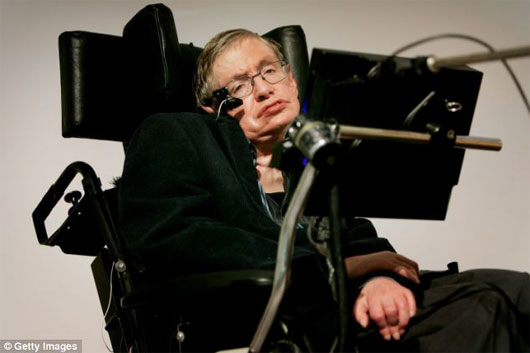Giving voice
Forget about organ donation, you can now give your voice to people who lose their ability to pronounce because of illness.
Voice of British physicist Stephen Hawking is one of the most recognizable sounds in the world, although in fact he cannot utter words directly due to internal lock syndrome (his body is completely paralyzed. except eye muscles). However, there are millions of people who are not as lucky as Mr. Hawking. Unable to speak, they had to rely on computerized voices, which had little choice and therefore lost their identity.
Recently, an organization called VocaliD is encouraging people to donate their voices so that they can create 'unique voices like fingerprints' , suitable for individuals who are being pushed into forgotten situations. romantic While the program is still in its early stages and experts are completing the recording process, they hope to use a web program or smartphone application so people can record their voices and send them to program. To build individual, VocaliD experts based in Delaware and Boston (USA), retrieve any sound that a person with pronunciation problems can create, then match the artificial voice that was partially mixed from the voice of the donor.

Stephen Hawking is one of the few people who can speak without being able to make real sound- (Photo: Getty)
Donated voices will be selected to suit the recipient, depending on age, body weight and gender. The ultimate goal is to make the artificial voice emanating from the computer with the recipient's own character, but as clear as the donor's voice. This simple idea is judged to have a strong impact on the lives of those who depend on computer voices to express their will. VocaliD estimates that tens of millions of people around the world are in this situation, and in the US alone there are about 2.5 million such cases. Meanwhile, there are only a few digital voice options, meaning millions of people have to share a voice, losing their personalities.
Research results show that each person has a specific sound source, emanating from the larynx, reflecting the special voice of each person. The sound source is pushed through the rest of the sound generator, changing the shape to create consonants and vowels. While some people are unable to manipulate the negative filter due to a motor nerve problem, many still retain some control of the source. It was the case of people with syndromes like Parkinson's, and VocaliD's project could help them once again regain their voices, combining real voices and donations.
To do this, experts use several thousand self-saved sentences, similar to how Apple engineers created Siri virtual assistant's voice and other speech recognition technologies. The recording process takes about 2-3 hours, the donor repeats the short sentences that, when combined, will include all sounds in the English language. Based on the recording, experts took voice mixing software to create pronounced 'units' , such as vowels and consonants. When completed, the patient can use an artificial voice to say any sentence at will.
- The deep voice is easy to pick up
- 10 secrets to a good voice
- Smartphone with voice control
- Why don't we like to hear our real voice?
- The voice 'accuses' the promiscuous person
- Women's voice is deeper after birth
- The truth about common reactions when giving gifts
- Guess the power of men through voice
- New technology allows you to imitate anyone's voice from one minute of recording
- Coming to TV to understand Vietnamese voice
- Mr. Snape is the best voice on the planet
- Two births were separated right ... 9 months
 Green tea cleans teeth better than mouthwash?
Green tea cleans teeth better than mouthwash? Death kiss: This is why you should not let anyone kiss your baby's lips
Death kiss: This is why you should not let anyone kiss your baby's lips What is salmonellosis?
What is salmonellosis? Caution should be exercised when using aloe vera through eating and drinking
Caution should be exercised when using aloe vera through eating and drinking